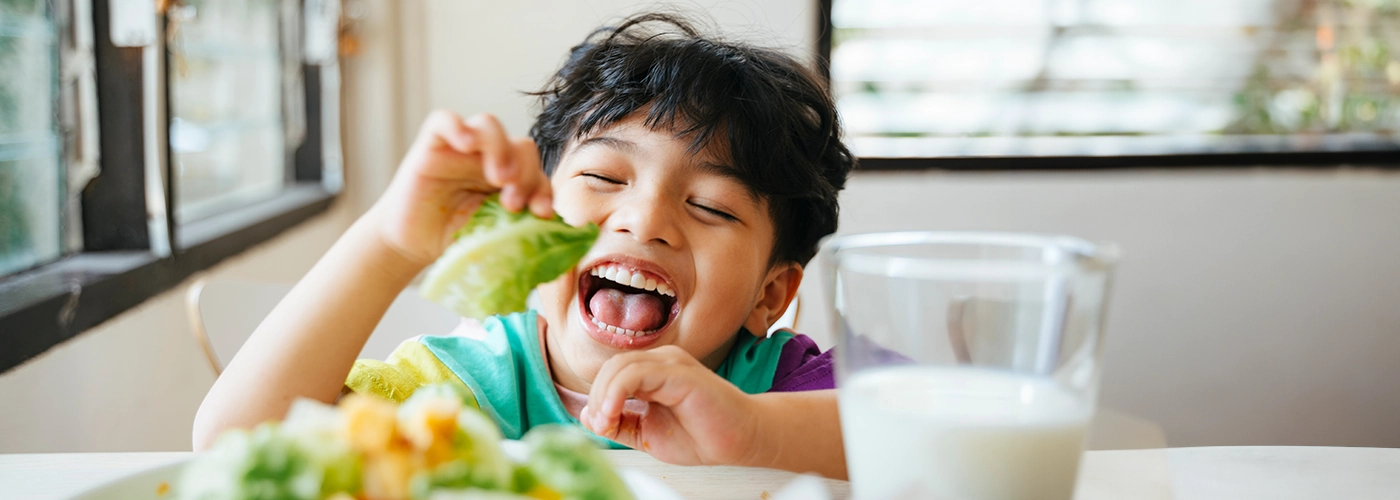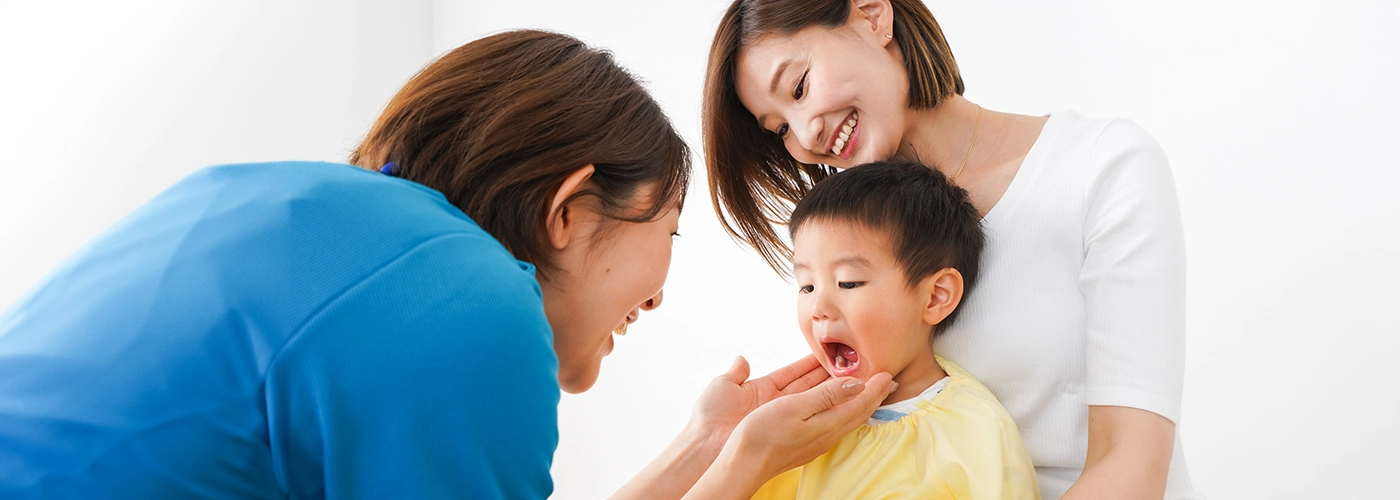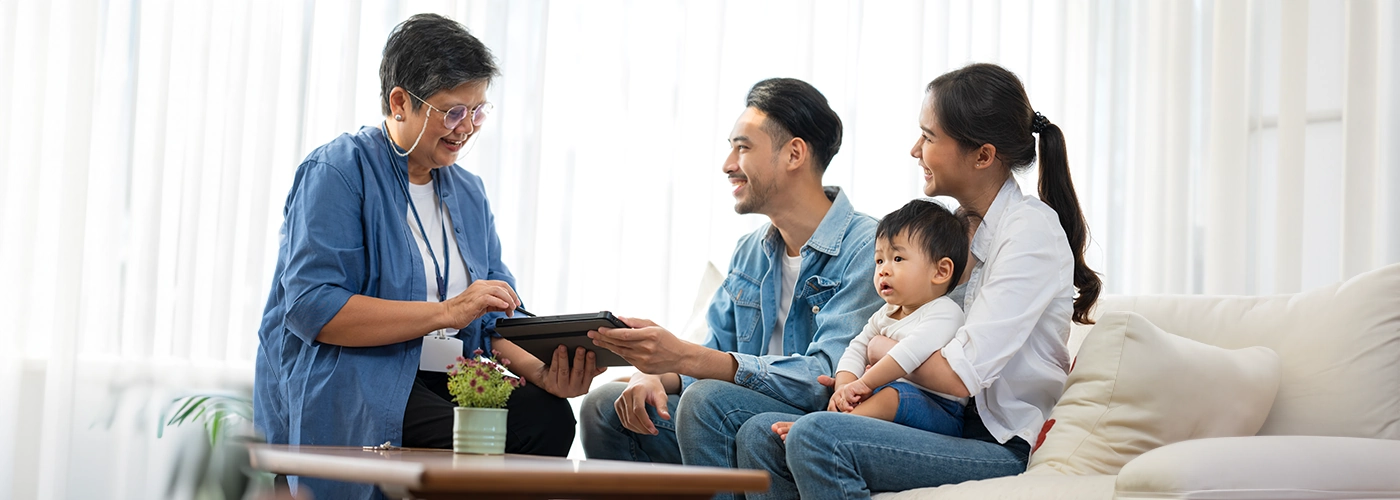
Paediatrics is a branch of medical speciality which is concerned with the health of newborns, children, and adolescents. Since children are not merely "little adults," the treatment needs to be different.
A pediatrician is a medical specialist who specializes in treating infants and children. When conducting examinations, diagnoses, and prescribes, the specialist takes into account the child's stage of growth and development.
At Pantai Hospital Ampang, we offer General Paediatrics services, ranging from acute to chronic illnesses, such as:
Children can get sick more easily because they have weaker immune systems than adults. Here are five common childhood illnesses in our country:
Fever is one of the most common infections in children. It is usually caused by a virus that spreads through the air. Symptoms of a fever also include a runny or stuffy nose, a mild fever, a sore throat, and a cough. Most cases improve with rest, fluids, and fever medication.
Flu (influenza) in children produces a rapid onset of fever, cough, and body aches, but symptoms may also include a runny nose, nausea, and fatigue. Although many children recover in less than a week, significant complications such as pneumonia may occur, especially in young children.
Childhood asthma causes inflammation of the lungs and airways in response to triggers such as pollen and respiratory illnesses. It produces daily symptoms that interfere with play, school, and sleep, and if not controlled properly, it can lead to severe attacks. While it is not a separate condition from adult asthma, it poses particular issues for children and is a leading cause of emergency visits and school absences. Although childhood asthma is incurable and can last until adulthood, proper treatment can help manage symptoms while protecting lung development.
Hand, foot, and mouth disease is a minor sickness caused by coxsackievirus A16 that affects people of all ages, but is more common in young children. The virus spreads readily between people and through the air, causing symptoms such as mouth sores and rash on hands and feet. While there is no specific treatment, most people recover within 7 to 10 days, and some drugs can help with pain and discomfort. Handwashing on a regular basis and avoiding contact with sick people are examples of preventive practices.
Chickenpox, caused by the varicella-zoster virus, produces an itchy, blister-like rash and is highly contagious. The chickenpox vaccine, introduced in 1995, has drastically reduced its prevalence, with cases down by nearly 90% since the late 1990s. Chickenpox is primarily seen in children, although it can sometimes infect adults, who may experience more severe symptoms. Vaccination during childhood is suggested to avoid sickness, as chickenpox cannot be contracted again after the initial infection.
If a baby is tested positive for COVID-19, here are some guides from our Paediatrician in how to manage the illness.
If the baby is less than 2 years old or has any underlying medical conditions, please get a doctor to examine the baby further. Look for worrying symptoms such as high fever, worsening cough, difficulty breathing or fast breathing (tachycardic), the baby becomes less active and has poor oral intake.
If any of these worrying symptoms occur, the baby needs to be taken to a hospital for specialist care, immediately.
This answer was contributed by Dr Yamuna Ramadas. To schedule an appointment, click here.
Children with developmental disabilities may have a harder time coping with the pandemic. The following can be a guide for parents who would like to help their children to cope during the COVID-19 period:
Depending on your child’s disability, activities that involve movement are important, especially for children with ADHD, ASD, learning disabilities or gross motor delays.
Try to find simple, yet effective, activities for your child, such as jumping on trampoline; dance videos, activities on yoga mat, such as crawling, rolling around; supervised waterplay.
This is important to reduce some of that energy they have, improve gross motor, and reduce stress. If you are able to do outdoor activities, do get them as often as daily. Running in a field, cycling, or even a short walk helps.
Create a timetable, with the help of a child occupational therapist (OT). A simple timetable of activities, nap / sleep time and mealtime will help in creating a routine for your child. Keeping to routines will help your child manage expectations and restlessness.
Providing healthy nutrition is important. Try to minimise or avoid entirely giving ‘junk’ food or foods with high sugar or salt content. Make sure to increase the intake of foods that contain vitamin C, omega fatty acid, such as fruits and fish. Supplements such as zinc, vitamin C, and omega fatty acids are important for physical development and reduce risk of infection.
Do provide as much as this as you can, as the restrictions during COVID-19 may hit harder for children with developmental disabilities. The following are signs of deteriorating condition that you should look for in your child:
Take note of your child’s usual and unusual behaviours, and discuss with your doctor if you notice any of the above signs and changes.
Keep up with your child’s scheduled visits to the doctor, especially to the Paediatrician or to the Developmental Paediatrician. Discuss with your doctor regarding the frequency of visits your child may need.
Some children may have appointments with Occupational Therapist (OT), Speech-Language Therapist (ST) or Physical Therapist (PT) that have been disrupted during the pandemic. Discuss with the respective therapist on the best way to keep up with the therapies at home.
Last but not least, remember to give your child and yourself a break through this difficult time. Do not expect everything to be how it was before and to accept that things may not always be perfect or as planned. Just do the best you can, especially in the new normal.
This answer was contributed by Dr Yamuna Ramadas . To schedule an appointment, click here .
Children are not little adults. Therefore, their health problems may present itself and affect the children differently. Among other things, skin inflammation may pose some confusion to parents as they figure out how to differentiate between different types of inflammation.
Here are some points that you may use to distinguish between eczema, skin allergy and rashes among children:
Eczema (also known as atopic dermatitis) is multifactorial, but mostly caused due to genetic predisposition. Look out for a family history in eczema. When children have parents or siblings who have eczema, the risk of getting this skin condition is higher.
The onset of eczema is anytime, but especially when the infant is between 1 to 3 months old. Eczema is usually recurrent, in which the rashes get better then reappear soon after. As an eczema rash is itchy, treatment is usually needed for this condition. In mild cases, moisturisers suffice to treat the condition. However, in severe cases, a topical steroid cream or ointment may be needed.
A skin allergy can be acknowledged if the onset of the rash is after exposure to an allergen, which causes the allergic reaction. The reaction may occur within minutes, or between 4 to 6 hours after the exposure. Allergens are usually substances or foods that trigger an allergic reaction.
An allergic skin reaction usually presents with an itchy rash, sometimes accompanied by other symptoms of allergy, such as the swelling of the lips or the eyes. The child may also experience breathing difficulties as a result of the allergies. Common culprits of an allergic reaction are seafoods and peanuts.
A heat rash appears after exposure to heat or sweat. However, it usually disappears after a cool environment is provided to the child, such as the wearing of loose clothing or introducing air-conditioning to the child. A heat rash typically does not necessitate treatment, as deteriorating symptoms are usually attributed to other illnesses.
It is useful to remember that in most cases, skin conditions such as eczema, skin allergy or even heat rash, can be managed, controlled and monitored when done correctly and under expert supervision. It does not hurt to take your child to the general practitioner (GP), or to specialists in this area, such as a Paediatrician (specialist in children's healthcare), a Paediatrics Dermatologist (specialist in children's skin diseases) or even a nutritionist or dietitian, as foods can be a source to these problems.
This article was contributed by Dr Yamuna Ramadas, Consultant Paediatrician at Pantai Hospital Ampang. To know more about where and when to see Dr Yamuna Ramadas at her clinic, click here.

Constipation in children can be uncomfortable and distressing. It's essential for parents to know how to provide relief and support when their child is experiencing this common issue.
Here are 7 tips to help your child when they have constipation:
Encourage your child to consume more fiber-rich foods, such as fruits, vegetables, whole grains, and legumes. Fiber helps soften stools and promote regular bowel movements.
Ensure your child drinks an adequate amount of water throughout the day. Proper hydration helps keep stools soft and easy to pass.
Encourage your child to establish a regular toilet routine. Have them sit on the toilet for a few minutes after meals, as this is when the body is more likely to have a bowel movement due to gastrocolic effect.
Encourage physical activity and playtime, as exercise can help stimulate the digestive system and promote regular bowel movements. The bowel moves when the body moves.
Reduce the intake of processed foods, sugary snacks, and excessive dairy products, which can contribute to constipation.
Prune juice is a natural laxative that can help soften stools.
Ensure that your child's bathroom experience is comfortable and non-stressful. A step stool for their feet and a cozy atmosphere can make a difference.
If constipation persists despite home remedies, or if your child experiences severe pain, bleeding, or other concerning symptoms, please consult a paediatrician. Patient child chronic constipation may develop anal fissures, which cause pain upon defecation and leads to avoidance to poo.
This article was contributed by Dr Goh Chun Hwee, Consultant Paediatrician at Pantai Hospital Ampang. To know more about where and when to see Dr Goh Chun Hwee at his clinic, click here.

Finger-sucking is a common behavior in infants and young children, and it often raises questions for parents. Understanding why your child sucks their fingers can help you address this behavior with patience and care.
Here are 6 reasons why children suck their fingers:
Finger-sucking is a natural self-soothing mechanism for infants and toddlers. Babies are born with a strong sucking reflex, which helps them nurse and find comfort. Sucking on fingers or thumbs provides a sense of security and relaxation, especially when they are tired, anxious, or in unfamiliar situations.
Young children explore the world through their senses, and finger-sucking allows them to investigate different textures and sensations within their mouths. It's a way for them to learn about their own bodies and surroundings.
Teething can cause discomfort and pain in a child's gums. Sucking on fingers can provide relief from the soreness and pressure associated with new teeth erupting.
Finger-sucking can serve as a transitional object, offering emotional support when a child is separated from their primary caregiver. It provides a substitute for the comfort they receive when being close to a parent or guardian.
Over time, finger-sucking can become a habit. Children may continue the behavior because it has become familiar and comforting, even when the initial soothing purpose is less necessary.
Children might suck their fingers when they are bored or looking for something to do. It can provide a simple form of entertainment and distraction.
It's important to note that finger-sucking is typically harmless during infancy and toddlerhood. Most children naturally outgrow the habit as they develop alternative coping mechanisms and find other sources of comfort. However, prolonged finger-sucking may lead to dental problems such as dental overcrowding, oral infections, oral thrush, middle ear effusion etc.
Parents can support their child's development by offering alternatives for self-soothing, such as a favorite blanket or stuffed toy, and gently redirecting their attention when they observe finger-sucking. Encouraging healthy oral habits and maintaining good oral hygiene is essential as prolonged finger-sucking can affect dental development.
Ultimately, understanding the reasons behind finger-sucking helps parents approach it with empathy and patience, recognizing that it is a normal part of a child's development that usually resolves with time. If finger-sucking persists beyond toddlerhood or causes concerns, do consult a pediatrician or dentist for guidance.
This article was contributed by Dr Goh Chun Hwee, Consultant Paediatrician at Pantai Hospital Ampang. To know more about where and when to see Dr Goh Chun Hwee at his clinic, click here.

Common signs of food allergies include body skin rashes and itchiness. A food intolerance usually causes a bloated stomach, abdominal discomfort or diarrhoea. More serious forms of food allergies can be life-threatening with signs of swollen eyes and lip, wheezing or difficulty in breathing, low blood pressure, faint or even in shock due to anaphylactic reaction.
This article was contributed by Dr Hon Sai Kit, Consultant Paediatrician at Pantai Hospital Ampang. To know more about where and when to see Dr Hon Sai Kit at his clinic, click here.

There is no direct link of sweetened meals causing overactivity in children, proven by several studies. Your child may be over acting due to other excitement in emotion rather than the sugary food. However, children who were regularly given sweetened food are likely to have little appetite or refuse eating healthier food.
This article was contributed by Dr Hon Sai Kit, Consultant Paediatrician at Pantai Hospital Ampang. To know more about where and when to see Dr Hon Sai Kit at his clinic, click here.

It depends on many factors including genetics, your own immune system, exposure and the severity of symptoms. Some food allergies may be temporary, for example cow’s milk, soy, wheat and egg. They may outgrow these allergies during toddler. Some may persist until adulthood for example fish, shellfish, peanuts, etc. One can also develop these food allergies beginning in adulthood.
This article was contributed by Dr Hon Sai Kit, Consultant Paediatrician at Pantai Hospital Ampang. To know more about where and when to see Dr Hon Sai Kit at his clinic, click here.


